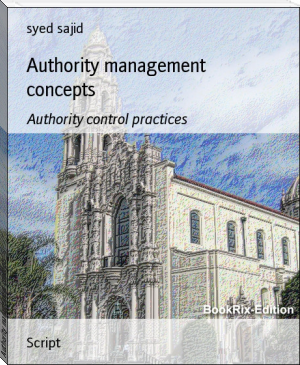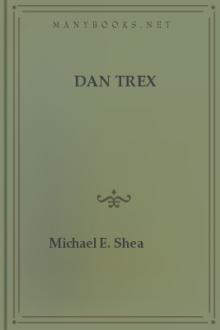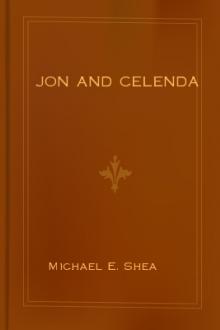Authority management concepts - syed sajid (good books to read for women .TXT) 📗

- Author: syed sajid
Book online «Authority management concepts - syed sajid (good books to read for women .TXT) 📗». Author syed sajid
always occur in nondemocracies. Looking at the volume of refugee flows for the last twenty years, the first eighty-seven cases occurred in autocracies.
• Research shows that the liberal democratic nations have much less democide or murder by government. However it should be noted that those were also moderately developed nations before applying liberal policies.[13] Similarly, they have less genocide and politicide.[14]
• Liberal democracies are more often associated with a higher average self-reported happiness in a nation.
• Research by the World Bank suggests that political institutions are extremely important in determining the prevalence of corruption: democracy, parliamentary systems, political stability, and freedom of the press are all associated with lower corruption.[16] Freedom of information legislation is important for accountability and transparency. The Indian Right to Information Act "has already engendered mass movements in the country that is bringing the lethargic, often corrupt bureaucracy to its knees and changing power equations completely."
• In the last forty-five years, the African countries poor democracies have grown their economies more rapidly than nondemocracies of the same continent.
• Of the eighty worst financial catastrophes during the last four decades, only five were in democracies. Similarly, poor democracies are half likely as nondemocracies to experience a 10 percent decline in GDP per capita over the course of a single year
• Several studies have concluded that terrorism is most common in nations with intermediate political freedom. The nations with the least terrorism are the most and least democratic nations.
Rational-legal authority
Rational-legal authority (also known as rational authority, legal authority, rational domination, legal domination, or bureaucratic authority) is a form of leadership in which the authority of an organization or a ruling regime is largely tied to legal rationality, legal legitimacy and bureaucracy. The majority of the modern states of the twentieth century are rational-legal authorities, according to those who use this form of classification
Rational-legal authority in sociology
In sociology, the concept of rational-legal domination comes from Max Weber's tripartite classification of authority (one of several classifications of government used by sociologists); the other two forms being traditional authority and charismatic authority. All of those three domination types represent an example of his ideal type concept. Weber noted that in history those ideal types of domination are always found in combinations.
In traditional authority, the legitimacy of the authority comes from tradition. Charismatic authority is legitimized by the personality and leadership qualities of the ruling individual. Finally, rational-legal authority derives its powers from the system of bureaucracy and legality.
Legal rationality and legitimacy
In the modern state, people (and legal practitioners) attribute legitimacy to a legal order insofar as its laws have been enacted (this concept of legal authority and its legitimacy should be understood in the light of arguments of natural law and legal positivism).
Weber defined legal order as a system where the rules are implemented and obeyed in the belief that they are legitimate because they conform with the statuses of a government that monopolizes their enactment and the legitimate use of physical force.
Emergence of the modern state
Weber wrote that the distinctively rational characteristics of the state emerged from the patrimonial and feudal struggle for power that can be found only in Occidental civilization. The prerequisites for the modern Western state are:
• monopolization by central authority of the means of domination and administration based on:
o centrally directed and permanent system of taxation
o centrally directed and permanent system of military force
• monopolization of legal enactments and the legitimate use of force by central authority
• organisation of a rationally oriented officialdom, whose exercise of administrative function is dependent upon the central authority
Weber argued that some of those attributes have existed in various time or places, but combined they have emerged only in Occidental civilization. The conditions that favoured this were
• emergence of legal rationality (various status groups in the Occident promoted that emergence)
• emergence of modern officialdom (bureaucracy), which required
o development of the money economy, where officials are compensated in money instead of kind (usually land grants)
o quantitative and qualitative expansion of administrative tasks
o expansion on officialdom due to its centralisation and increased efficiency over past alternative methods of administration.
Weber's belief that rational-legal authority did not exist in Imperial China has been heavily criticized, and does not have many supporters in the early 21st century.
Modern state
According to Max Weber, a modern state exists where a political community possesses the following
characteristics:
• an administrative and legal order that is subject to change by legislation
• an administrative apparatus that conducts official business in accordance with legislative regulation
• binding authority over all persons (citizens) and most actions taking place in the area of its jurisdiction
• the legitimation to use force within this area if coercion is permitted or prescribed by the legally constituted government
An important attribute of Weber's definition of a modern state was the fact that it is a bureaucracy.
The vast majority of the modern states from the 20th century onward fall under the rational-legal authority category.
Rational-legal leaders
Ideally, the majority of modern politicians represent this type of authority.
Officials must exercise their judgment and their skills, but their duty is to place these at the service of a higher authority; ultimately they are responsible only for the impartial execution of assigned tasks and must sacrifice their personal judgment if it runs counter to their official duties.
Weber distinguished between bureaucratic officials and political leaders.
Other qualities of officials of a legal-rational authority:
• They are personally free and appointed to their positions on the basis of conduct.
• They exercise the authority delegated to them in accordance with impersonal rules, and their loyalty is enlisted on behalf of the faithful execution of their official duties.
• Their appointment and job placement are dependent upon their technical qualifications.
• Their administrative work is a full-time occupation.
• Their work is rewarded by a regular salary and prospects of advancement in a lifetime career.
Politicians must demonstrate their capacity for independent action, for which they alone are responsible. Partisanship is important to them, they must reject the responsibility for public actions that conflict with their basic policy. They should have charismatic appeal to win elections under conditions of universal suffrage.
Traditional authority
Traditional authority (also known as traditional domination) is a form of leadership in which the authority of an organization or a ruling regime is largely tied to tradition or custom. The main reason for the given state of affairs is that it 'has always been that way'.
Traditional authority in Sociology
In sociology, the concept of traditional authority (domination) comes from Max Weber's tripartite classification of authority, the other two forms being charismatic authority and rational-legal authority. All of those three domination types represent an example of his ideal type concept. Weber noted that in history those ideal types of domination are always found in combinations.
In traditional authority, the legitimacy of the authority comes from tradition; in charismatic authority from the personality and leadership qualities of the individual; and in rational-legal authority from powers that are bureaucratically and legally attached to certain positions.
Patriarchs and their households
Weber derives the traditional domination from patriarchs and their households - in other words, from the ancient tradition of family (the authority of a master over his household). The master is designated in accordance with the rules of inheritance. He has no administrative staff nor any machinery to enforce his will by force alone; he depends on the willingness of the group members to respect his authority. Those members stand in personal relations to him. They obey him based on the belief that this is their duty sanctioned by immemorial tradition and on feeling of filial piety for the person of the master.
Patrimonalism
Patrimonal government can be described as an extension of the ruler's household where all of the governmental offices originate from the household administration of the ruler, and all the population is - in theory - personal dependents of the master. Their relations still are depended on the basis of paternal authority and filial dependence.
However, with the growth of the territory certain patriarchs controlled, the need for organised and more independent administrative staff and military force became greater as well. With forced increased decentralisation some individuals gain more rights (for example, the right to inheritance and marriage without the consent of the rulers, to be judged by independent courts instead of officials of the royal household, etc.).
Military force is one of the important instruments of a patrimonial rule. Weber distinguished five types of military organisations. In all of those cases the forces remain the personal instruments of the ruler (he is responsible for their equipment, maintenance and revenue).
Another instrument of a patrimonial rule is the patrimonial administration. The officials are usually the favourites of the ruler, appointed by him. The ruler treats all political administration as his personal affair, empowers them from case to case, assigns specific tasks, etc. It is very rare to discover any clear and constant system of hierarchy, power and responsibility in the deluge of official titles of most patrimonial administrations.
The officials treat their administrative work as a personal service based on their duty of obedience and respect to the master. Their rights are privileges granted and withdrawn by the ruler. They can treat subject population just as the ruler treats them, as long as they maintain the tradition and interests of the ruler.
One of the best examples of almost pure type of patrimonalism is Ancient Egypt, where the population was entirely dependent upon the coordinated control of the waterways (Nile River). This facilitated the creation of centralised government, and the lengthy period of time the men were free from work on the fields meant that population could and was extensively employed in forced-labor projects. When the royal household required it, any rights of any individual were waived and he was forced to perform the public duties. Thus the whole country was one vast patriarchal household of the pharaoh.
It is interesting to note that when land is given to military or officials for the performance of their duties, their independence increases and the power of the ruler weakens (consider the Mameluks and their rebellions, or the difference between Chinese Confucian literati who were never able to overthrow the power of the emperor and European knights who evolved into powerful aristocracy in many cases vastly limiting the power of the kings (especially in the Polish-Lithuanian Commonwealth)).
Patrimonial dominance has often prevailed in the Orient, where land remained in the control of the patrimonial ruler. However, in the Occident large estates have been out of the control of the ruler, and thus according to Weber this was one of the major reasons patrimonalism has been replaced by feudalism.
Feudalism
Feudalism when compared to patrimonalism, has one major similarity and several important differences.
The similarity is that both are based on tradition and have powerful rulers who grant rights in return for military and administrative services.
The differences are important for the subtler distinction:
•feudalism replaces the paternal relationship of patrimonalism by a contractually fixed fealty on the basis of knightly militarism.
•the patrimonial ruler's grants of authority of liturgical obligations of political subjects and the personal dependence of patrimonial official are replaced in feudalism by the contractual freedom, personal fealty and social and economic prominence on the part of the vassals.
Traditional leaders
Most of the representatives of any dynasty ruling for more than one generation (kings, emperors, sultans, etc.) would fall into that category. Thus majority monarchies and some autocracies, oligarchies and theocracies would be ruled by traditional leaders.
Often male head of a common family should be considered a traditional leader. This could also be the case in a
• Research shows that the liberal democratic nations have much less democide or murder by government. However it should be noted that those were also moderately developed nations before applying liberal policies.[13] Similarly, they have less genocide and politicide.[14]
• Liberal democracies are more often associated with a higher average self-reported happiness in a nation.
• Research by the World Bank suggests that political institutions are extremely important in determining the prevalence of corruption: democracy, parliamentary systems, political stability, and freedom of the press are all associated with lower corruption.[16] Freedom of information legislation is important for accountability and transparency. The Indian Right to Information Act "has already engendered mass movements in the country that is bringing the lethargic, often corrupt bureaucracy to its knees and changing power equations completely."
• In the last forty-five years, the African countries poor democracies have grown their economies more rapidly than nondemocracies of the same continent.
• Of the eighty worst financial catastrophes during the last four decades, only five were in democracies. Similarly, poor democracies are half likely as nondemocracies to experience a 10 percent decline in GDP per capita over the course of a single year
• Several studies have concluded that terrorism is most common in nations with intermediate political freedom. The nations with the least terrorism are the most and least democratic nations.
Rational-legal authority
Rational-legal authority (also known as rational authority, legal authority, rational domination, legal domination, or bureaucratic authority) is a form of leadership in which the authority of an organization or a ruling regime is largely tied to legal rationality, legal legitimacy and bureaucracy. The majority of the modern states of the twentieth century are rational-legal authorities, according to those who use this form of classification
Rational-legal authority in sociology
In sociology, the concept of rational-legal domination comes from Max Weber's tripartite classification of authority (one of several classifications of government used by sociologists); the other two forms being traditional authority and charismatic authority. All of those three domination types represent an example of his ideal type concept. Weber noted that in history those ideal types of domination are always found in combinations.
In traditional authority, the legitimacy of the authority comes from tradition. Charismatic authority is legitimized by the personality and leadership qualities of the ruling individual. Finally, rational-legal authority derives its powers from the system of bureaucracy and legality.
Legal rationality and legitimacy
In the modern state, people (and legal practitioners) attribute legitimacy to a legal order insofar as its laws have been enacted (this concept of legal authority and its legitimacy should be understood in the light of arguments of natural law and legal positivism).
Weber defined legal order as a system where the rules are implemented and obeyed in the belief that they are legitimate because they conform with the statuses of a government that monopolizes their enactment and the legitimate use of physical force.
Emergence of the modern state
Weber wrote that the distinctively rational characteristics of the state emerged from the patrimonial and feudal struggle for power that can be found only in Occidental civilization. The prerequisites for the modern Western state are:
• monopolization by central authority of the means of domination and administration based on:
o centrally directed and permanent system of taxation
o centrally directed and permanent system of military force
• monopolization of legal enactments and the legitimate use of force by central authority
• organisation of a rationally oriented officialdom, whose exercise of administrative function is dependent upon the central authority
Weber argued that some of those attributes have existed in various time or places, but combined they have emerged only in Occidental civilization. The conditions that favoured this were
• emergence of legal rationality (various status groups in the Occident promoted that emergence)
• emergence of modern officialdom (bureaucracy), which required
o development of the money economy, where officials are compensated in money instead of kind (usually land grants)
o quantitative and qualitative expansion of administrative tasks
o expansion on officialdom due to its centralisation and increased efficiency over past alternative methods of administration.
Weber's belief that rational-legal authority did not exist in Imperial China has been heavily criticized, and does not have many supporters in the early 21st century.
Modern state
According to Max Weber, a modern state exists where a political community possesses the following
characteristics:
• an administrative and legal order that is subject to change by legislation
• an administrative apparatus that conducts official business in accordance with legislative regulation
• binding authority over all persons (citizens) and most actions taking place in the area of its jurisdiction
• the legitimation to use force within this area if coercion is permitted or prescribed by the legally constituted government
An important attribute of Weber's definition of a modern state was the fact that it is a bureaucracy.
The vast majority of the modern states from the 20th century onward fall under the rational-legal authority category.
Rational-legal leaders
Ideally, the majority of modern politicians represent this type of authority.
Officials must exercise their judgment and their skills, but their duty is to place these at the service of a higher authority; ultimately they are responsible only for the impartial execution of assigned tasks and must sacrifice their personal judgment if it runs counter to their official duties.
Weber distinguished between bureaucratic officials and political leaders.
Other qualities of officials of a legal-rational authority:
• They are personally free and appointed to their positions on the basis of conduct.
• They exercise the authority delegated to them in accordance with impersonal rules, and their loyalty is enlisted on behalf of the faithful execution of their official duties.
• Their appointment and job placement are dependent upon their technical qualifications.
• Their administrative work is a full-time occupation.
• Their work is rewarded by a regular salary and prospects of advancement in a lifetime career.
Politicians must demonstrate their capacity for independent action, for which they alone are responsible. Partisanship is important to them, they must reject the responsibility for public actions that conflict with their basic policy. They should have charismatic appeal to win elections under conditions of universal suffrage.
Traditional authority
Traditional authority (also known as traditional domination) is a form of leadership in which the authority of an organization or a ruling regime is largely tied to tradition or custom. The main reason for the given state of affairs is that it 'has always been that way'.
Traditional authority in Sociology
In sociology, the concept of traditional authority (domination) comes from Max Weber's tripartite classification of authority, the other two forms being charismatic authority and rational-legal authority. All of those three domination types represent an example of his ideal type concept. Weber noted that in history those ideal types of domination are always found in combinations.
In traditional authority, the legitimacy of the authority comes from tradition; in charismatic authority from the personality and leadership qualities of the individual; and in rational-legal authority from powers that are bureaucratically and legally attached to certain positions.
Patriarchs and their households
Weber derives the traditional domination from patriarchs and their households - in other words, from the ancient tradition of family (the authority of a master over his household). The master is designated in accordance with the rules of inheritance. He has no administrative staff nor any machinery to enforce his will by force alone; he depends on the willingness of the group members to respect his authority. Those members stand in personal relations to him. They obey him based on the belief that this is their duty sanctioned by immemorial tradition and on feeling of filial piety for the person of the master.
Patrimonalism
Patrimonal government can be described as an extension of the ruler's household where all of the governmental offices originate from the household administration of the ruler, and all the population is - in theory - personal dependents of the master. Their relations still are depended on the basis of paternal authority and filial dependence.
However, with the growth of the territory certain patriarchs controlled, the need for organised and more independent administrative staff and military force became greater as well. With forced increased decentralisation some individuals gain more rights (for example, the right to inheritance and marriage without the consent of the rulers, to be judged by independent courts instead of officials of the royal household, etc.).
Military force is one of the important instruments of a patrimonial rule. Weber distinguished five types of military organisations. In all of those cases the forces remain the personal instruments of the ruler (he is responsible for their equipment, maintenance and revenue).
Another instrument of a patrimonial rule is the patrimonial administration. The officials are usually the favourites of the ruler, appointed by him. The ruler treats all political administration as his personal affair, empowers them from case to case, assigns specific tasks, etc. It is very rare to discover any clear and constant system of hierarchy, power and responsibility in the deluge of official titles of most patrimonial administrations.
The officials treat their administrative work as a personal service based on their duty of obedience and respect to the master. Their rights are privileges granted and withdrawn by the ruler. They can treat subject population just as the ruler treats them, as long as they maintain the tradition and interests of the ruler.
One of the best examples of almost pure type of patrimonalism is Ancient Egypt, where the population was entirely dependent upon the coordinated control of the waterways (Nile River). This facilitated the creation of centralised government, and the lengthy period of time the men were free from work on the fields meant that population could and was extensively employed in forced-labor projects. When the royal household required it, any rights of any individual were waived and he was forced to perform the public duties. Thus the whole country was one vast patriarchal household of the pharaoh.
It is interesting to note that when land is given to military or officials for the performance of their duties, their independence increases and the power of the ruler weakens (consider the Mameluks and their rebellions, or the difference between Chinese Confucian literati who were never able to overthrow the power of the emperor and European knights who evolved into powerful aristocracy in many cases vastly limiting the power of the kings (especially in the Polish-Lithuanian Commonwealth)).
Patrimonial dominance has often prevailed in the Orient, where land remained in the control of the patrimonial ruler. However, in the Occident large estates have been out of the control of the ruler, and thus according to Weber this was one of the major reasons patrimonalism has been replaced by feudalism.
Feudalism
Feudalism when compared to patrimonalism, has one major similarity and several important differences.
The similarity is that both are based on tradition and have powerful rulers who grant rights in return for military and administrative services.
The differences are important for the subtler distinction:
•feudalism replaces the paternal relationship of patrimonalism by a contractually fixed fealty on the basis of knightly militarism.
•the patrimonial ruler's grants of authority of liturgical obligations of political subjects and the personal dependence of patrimonial official are replaced in feudalism by the contractual freedom, personal fealty and social and economic prominence on the part of the vassals.
Traditional leaders
Most of the representatives of any dynasty ruling for more than one generation (kings, emperors, sultans, etc.) would fall into that category. Thus majority monarchies and some autocracies, oligarchies and theocracies would be ruled by traditional leaders.
Often male head of a common family should be considered a traditional leader. This could also be the case in a
Free e-book «Authority management concepts - syed sajid (good books to read for women .TXT) 📗» - read online now
Similar e-books:





Comments (0)